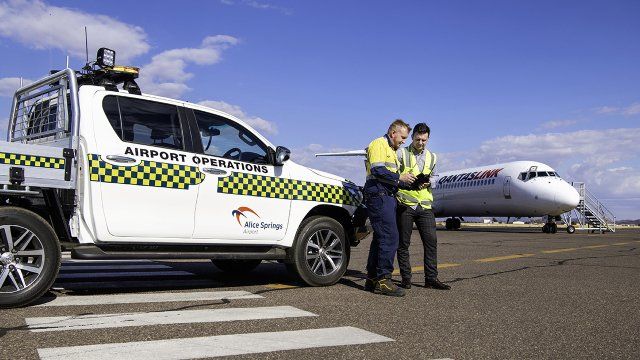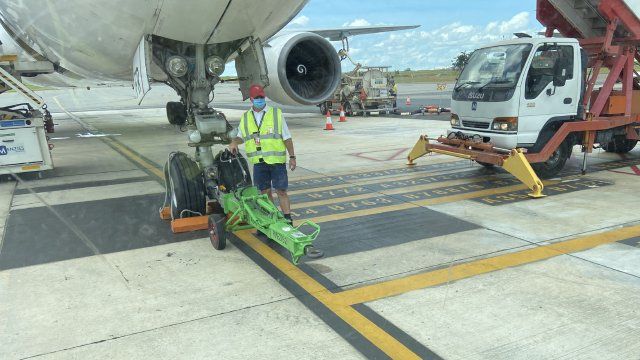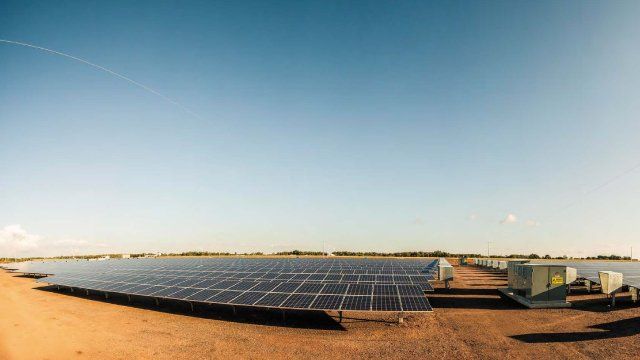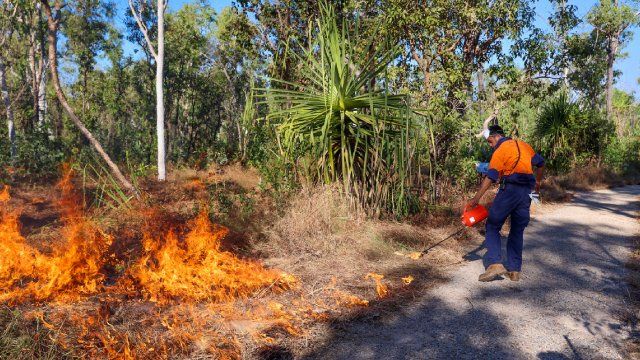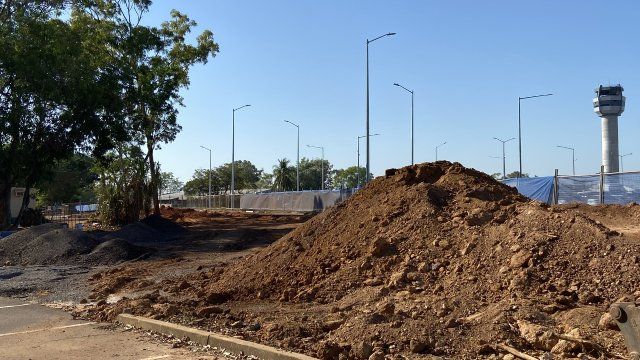Corporate Sustainability
ADG views corporate sustainability as conducting business to create value for present stakeholders while protecting the rights of future stakeholders.
Not only is sustainability good for the environment and the communities we work across, it also represents good business.
Sustainability is incorporated across our business operations, our staff, our community and our environment.

Corporate Social Responsibility
Workforce profile
During 2020–21 our values were reviewed and workshopped with staff. We actively encourage our people to create a positive culture through living our values of: Safety, Our People, Sustainability, Innovation, and Passion. Through our focus of building capability, our staff received various professional development opportunities including specialist and technical training, leadership workshops specific to ADG with a focus on resilience and corporate training, anti-discrimination and cultural awareness.
Specialist contractors also work at the airport in addition to our staff. Areas of the airport with significant contractor involvement include security, cleaning, maintenance and the construction and upgrade of new buildings and infrastructure.
All staff at our airports retained their positions in 2020–21 during COVID-19. During this time the welfare and wellbeing of all staff was closely monitored.
Work Health and Safety
ADG uses the Aerodrome Safety Management System (SMS), audited by the Civil Aviation Safety Authority (CASA), as a framework for our entire organisation’s SMS.
Airports have two distinct areas:
- airside, which is strictly controlled by CASA and other Commonwealth agencies for security, border force and transport safety
- landside, which comes under the jurisdiction of NT WorkSafe.
At year end, 4475 people were registered in the Working on Airport induction system, requiring induction updates every two years.
Energy usage and greenhouse gas emissions
In 2020-21, a total of 13.8 GWh was consumed by ADG. This includes the airport terminals, maintenance sheds, management offices and other airport infrastructure such as roadside lighting.
ADG’s significant investment in solar energy has welcomed another year of substantial renewable energy generation from rooftop and ground-based solar farms across all three airports. 9.2GWh of energy used across the three airports in 2020-21 was generated on site by renewable energy sources
ADG voluntarily reports under the National Energy and Greenhouse Reporting (NGER) Scheme, administered federally by the Clean Energy Regulator. In 2020–21, ADG’s total greenhouse gas (GHG) emissions was 8081.6 tonnes of equivalent carbon dioxide (tCO2e).
Climate changes
As part of climate change mitigation efforts Airport Development Group approved and commenced construction on an additional 4MW of rooftop solar to continue tracking towards ADG’s net zero scope 1 and 2 greenhouse gas emissions reduction target by 2030.
This year climate change adaption efforts were centred around bushfire prevention and response for both Darwin and Alice Springs. This included land management activities and strengthening stakeholder relationships in responding effectively to bushfires.
Climate change mitigation efforts through the Landscape Master Plan and Environment-by-Design framework involve an increased propensity for including trees, shade and energy-efficient measures in new developments to help cool the precinct and adapt to a warmer climate.
Water
Water for the three Northern Territory airports is supplied 100% by the Power and Water Corporation, sourced from surface water catchments in Darwin, and groundwater in both Alice Springs and Tennant Creek.
In 2020-21, our airports collectively used 103.5 megalitres (ML) of water, the equivalent of approximately 41 Olympic-sized swimming pools.
A significant amount of water is used across our airports to support passengers, daily operations, construction activities and airport gardens. Water is also distributed to airport tenants under sub-metering arrangements. There is currently no recycled water used across the airports’ regular operation.
ADG implements a rigorous water quality monitoring program, covering surface water, groundwater, potable water and trade waste, to ensure water quality remains high and regulatory compliance is achieved across the business.
Waste management and resource recovery
ADG measures all terminal waste generated by passengers, tenants and airside operators. Non-terminal waste from airport maintenance sheds, airport management centres, public areas and pre-cyclone clean ups for tenants is also accounted for across the Darwin lease area.
This year ADG had a focus on reusing stockpiled soil and fill for new developments, rather than importing new material from local quarries. The reuse of these materials requires stringent environmental testing, excavation and stockpiling processes to ensure materials are suitable for reuse.
In 2020–21, 263.1 tonnes of waste was generated by all terminal users (tenants and passengers) and other airport operations across the three airports. Of this, 25.9 tonnes, or 9.8%, was diverted from landfill and recycled. This was a recycling rate of 11.5% for Darwin International Airport and 4.5% for Alice Springs Airport.
Our People
At ADG we care and respect our teams, our customers, and our partners. Our vision is to engage high quality, culturally aligned team members who deliver to the organisation’s goals.
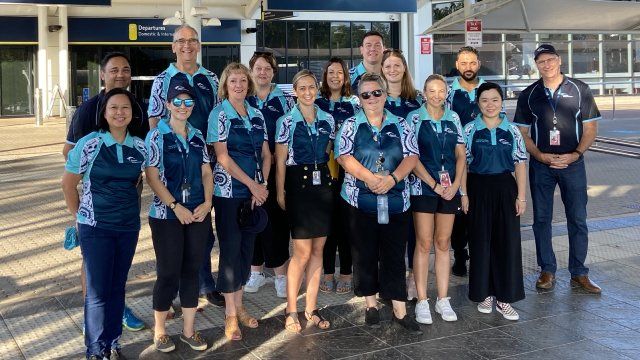
Staff development
Our leadership and management
program—the Inspire Program—gave our leaders the opportunity to enhance their skills, with a focus on self-awareness, leading and influencing others and improving relationships.
The program, developed in 2018–19, is
‘purpose built’ with definitive and clear
business objectives, and participants come from all parts of the business.
Gateway to health
ADG recognises our employees are our
company’s most valued asset, and we are committed to ensuring the health, safety and wellbeing of our workforce.
In April 2020, the Gateway to Health
program was put on hold due to COVID-19.
Workplace giving
ADG’s workplace giving program ran for
its 12th year in 2020–21. The program sees staff contribute to NT charities through payroll deductions, which ADG matches dollar for dollar.
Staff contributed a total of $xxxxx in 2020–21, for a total ADG contribution of $17,380.
Resources
Building Activity
Building activity at airports is subject to statutory controls under the Airport Act 1996 and the Airports (Building Control) Regulation 1996. the Building Approval Process ensures compliance with requirements of the Building Code of Australia (BCA) and relevant Australian standards.
For the community
In line with our Environment Strategy, we have implemented a number of key projects to enhance our natural resources and ensure they can be enjoyed for generations to come. These projects showcase an array of native Top End vegetation and its traditional uses.
For ADG Tenants
Below are some documents to help out our Tenants and Operators with environmental management processes at Darwin International Airport.



